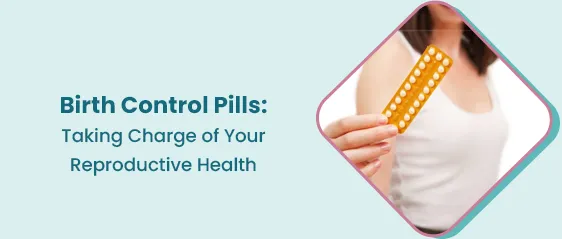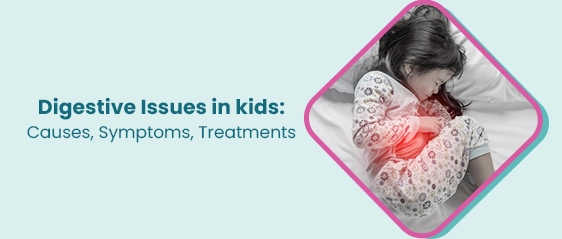Birth Control Pills: Taking Charge of Your Reproductive Health
- 14 Aug 2023
In today's busy world, science and medicine have made it simpler to handle different parts of our lives. One significant change that's helped our reproductive health is birth control pills. These small but strong pills have changed the way families plan for kids. They let people have more say in what happens with their bodies. This guide will show you all about birth control pills – what kinds there are, how they work, the good things they do, the possible downsides, and how they fit into how we care for our bodies today.
What Are Birth Control Pills?
Birth control pills, commonly called oral contraceptives, are a form of medication designed to prevent pregnancy by regulating the reproductive process. They contain synthetic hormones that mimic or alter the body's natural hormonal patterns. There are two main categories of birth control pills: combination and progestin-only.
- Combination Pills: These pills have two types of hormones – estrogen and progestin. They work by stopping your ovaries from letting out an egg, making the sticky stuff in your cervix thicker so sperm can't swim well, and changing the lining in your uterus so a fertilized egg can't stick.
- Progestin-Only Pills: These are sometimes called the "mini-pill." They only have progestin in them. They do two things: make the gooey stuff in your cervix thicker so it's harder for sperm to swim, and they might stop your ovaries from releasing eggs.
How Birth Control Pills Work
Birth control pills work by altering the hormonal balance in the body, thereby disrupting the normal processes of the menstrual cycle. The fundamental mechanisms include:
- Ovulation Suppression: The hormones in birth control pills prevent the ovaries from releasing eggs, effectively halting ovulation.
- Cervical Mucus Changes: Birth control pills thicken cervical mucus, making it harder for sperm to navigate the cervix and reach the egg.
- Uterine Lining Modification: The uterine lining becomes less receptive to a fertilized egg, reducing the likelihood of successful implantation.
Benefits of Birth Control Pills
Birth control pills offer numerous advantages beyond their primary function of preventing pregnancy. Some of these benefits include:
- Effective Contraception: When used consistently and correctly, birth control pills are highly effective at preventing unplanned pregnancies.
- Menstrual Regulation: Many individuals experience more predictable and manageable menstrual cycles using birth control pills.
- Reduced Menstrual Discomfort: Painful cramps, heavy bleeding, and other menstrual symptoms may be alleviated.
- Acne Management: Certain birth control pills can help control hormone-related acne, leading to clearer skin.
- Ovarian and Endometrial Cancer Protection: Long-term use of birth control pills has been associated with a decreased risk of certain cancers.
Possible Side Effects and Considerations
While birth control pills offer numerous benefits, they may also come with potential side effects and considerations, including:
- Nausea and Digestive Upset: Some individuals may experience nausea, especially during the initial period of pill use. Taking the pill with food can help alleviate this.
- Breast Tenderness: Temporary breast tenderness or enlargement might occur as the body adjusts to the hormones.
- Mood Changes: Mood swings or mood changes are possible due to hormone fluctuations.
- Spotting and Irregular Bleeding: Light spotting or irregular bleeding between periods is common, particularly in the early stages of pill use.
- Blood Clot Risk: While the overall risk is low, birth control pills slightly increase the risk of blood clots, especially in individuals with certain risk factors.
Consultation and Guidance
Before starting any form of birth control, it's essential to consult a healthcare provider. They can provide personalized guidance based on your medical history, lifestyle, and preferences. A healthcare professional will help you choose the most suitable type of birth control pill and offer advice on proper usage, potential interactions, and what to do in case of missed doses.
Conclusion
Birth control pills have ushered in a new era of reproductive autonomy and family planning. With their ability to prevent pregnancies, regulate menstrual cycles, and provide various other benefits, they have become a valuable tool for individuals seeking control over their reproductive health. While potential side effects exist, the guidance of a healthcare provider ensures safe and informed use. By understanding the mechanisms, benefits, and considerations of birth control pills, individuals can make empowered decisions about their reproductive well-being and confidently navigate the journey of modern family planning.
Frequently Asked Questions
1. What are birth control pills?
Birth control pills, also known as oral contraceptives, are medicines made to stop pregnancy by controlling how our bodies work using man-made hormones.
2. How do birth control pills work?
Birth control pills work by suppressing ovulation, thickening cervical mucus to impede sperm movement, and altering the uterine lining to prevent implantation.
3. Are there different types of birth control pills?
Yes, there are two main types: a combination of estrogen and progestin and progestin-only pills.
4. What are the benefits of using birth control pills?
Birth control pills effectively prevent unplanned pregnancies, regulate menstrual cycles, reduce menstrual discomfort, and may even help manage acne. They also offer protection against certain cancers.
5. Do birth control pills have any bad effects?
Most people do fine with them, but they might cause things like feeling sick, tender breasts, changes in mood, spotting, and a small chance of getting blood clots.
6. Can birth control pills make acne better?
Some types of these pills can help fix acne by fixing messed-up hormones that cause skin problems.
7. How well do birth control pills stop babies?
If you use them right all the time, they're super good at stopping babies, with only a tiny chance (less than 1%) of not working.
8. Is a prescription required for birth control pills?
Yes, birth control pills require a prescription from a healthcare provider.
9. How do I start taking birth control pills?
Your doctor will show you how to begin. Usually, you start on the first day you get your period or the Sunday after it starts.
10. Can I use birth control pills to skip my period?
Yep, some kinds of these pills can make your periods happen less often. Ask your doctor to help you figure it out.
11. What if I forget to take a birth control pill?
If you miss one, do what your pill pack says or ask your doctor what to do. You might need another way to stop babies for a bit.
12. Is it okay to use birth control pills for a long time?
It's usually fine to use them for a while, but remember to see your doctor regularly to stay healthy.





